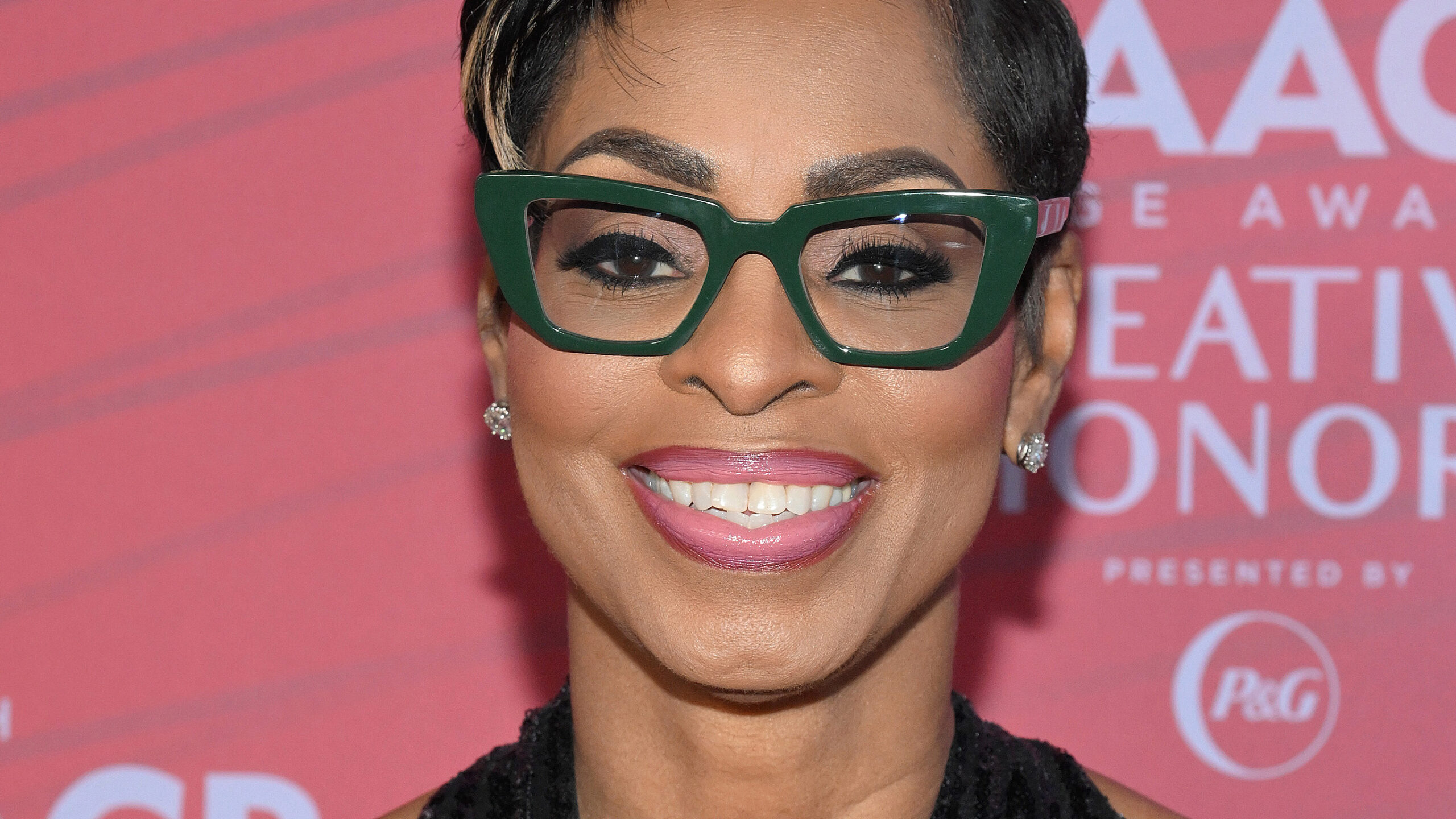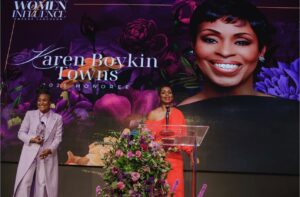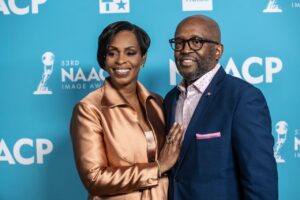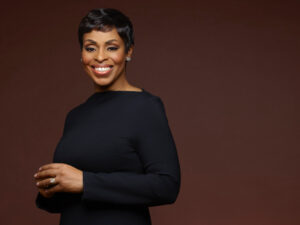
Commencement 2025: Medgar Evers College Keynote Speaker will bring message of meeting the moment

By David Gil de Rubio | dgilderubio@mec.cuny.edu
Karen Boykin-Towns’ journey towards becoming the Vice Chair of the National Board of Directors at the NAACP has gone down quite a circuitous path.
But for all the honors and accolades she’s accrued over the decades, landing as the Commencement Speaker and being named an honorary degree recipient at Medgar Evers College counts as an all-time thrill. Having it occur on the centennial of Medgar Wiley Evers’ birth only adds to how special this opportunity is for this Harlem native.
“The opportunity to be a Commencement Speaker, to be a recipient of an honorary doctorate, has certainly been on my bucket list,” Boykin-Towns shared. “We all vision board stuff and things we want to aspire to achieve. But this has exceeded all of my expectations because of the institution it’s coming from and the year that it’s coming in.
“Any year would be great, but all the more for this to be the anniversary of Medgar’s 100th birthday and the fact that in the last two years I’ve gotten to spend quite a bit of time with Miss Myrlie, both publicly and personally.”
Boykins-Towns has had a longstanding relationship with Medgar Evers College, dating back to her time as Chief of Staff to future New York State Governor and then-State Senator David Paterson. Those roots deepened for Boykins-Towns after she married Darryl Towns, son of storied Congressman Edolphus Towns and moved to Kings County to start her family.

“I knew Al Vann and Roger Green very well,” she recalled. “I remember Medgar Evers College President Edwin O. Jackson. When I got married and moved to Brooklyn, my awareness became greater. A woman by the name of Katie Davis who was a member of our church — Antioch Baptist Church — raised money for The Friends of Medgar Evers College. And of course, my pastor is Dr. Robert Waterman, who is also over at Medgar Evers College.”
She added, “Dr. Ramsey is the president I’ve spent the most time with since Dr. Jackson in those early years. I think the distinction of it being [the equivalent of being] New York’s HBCU is appropriate and I love the closer connection that is happening between the NAACP and the institution for which President Ramsey has really been intent [on fostering]. We have a college chapter operating on the campus. All that on top of the positive connection to the family, which is great.”
Ask Boykins-Towns about her professional experiences that include being selected by Pfizer’s CEO to serve as its first Chief Diversity Officer in 2008 and later serving as a member of the Senior Leadership Committee which consisted of the top 200 leaders in the global organization and she’ll say much of it comes down to her not allowing fear to sidetrack her.
“Every job I had in Pfizer, after my initial job from a promotional perspective came where I didn’t know that I knew everything about what I was going into,” she said. “But what I did know was that I’m smart, capable and a quick study. And for whatever I don’t know, I know some people who do and I’ll figure it out.”

A product of the New York City public school system, Boykins-Towns and sister Freida Foster (a former CUNY trustee), are the daughters of Betty Foster, a nurse’s aide with a firm belief in the power of education. Foster was the one who encouraged Boykins-Towns to take a job with Paterson after he offered her a position on his staff following her graduation from the College of Mount Saint Vincent.
“I was hoping [David] would write me a letter of recommendation,” she recalled. “When he asked me what I was doing next, I said I was thinking of going to graduate school. He said I could always go to grad school and instead, he asked me to go work for him in the Harlem office. I’ll never forget my mother saying this would be a great opportunity and that his father was Basil Patterson. My mom was a member of 1199 and Basil was their attorney. She thought he walked on water, so for me to be working for his son, that was everything. Eventually I said yes. I was a receptionist to start with and that didn’t last for very long.”
That combination of determination, relentless curiosity and off-the-charts work ethic served Boykins-Towns when she took a leap of faith to become founder and President/CEO of Encore Strategies LLC, a boutique consultancy firm focusing on integrating business and public affairs initiatives.
For this self-described “little girl from Harlem,” patience and persistence have been keys to her success.
“The thing for this part of my life, which would have been helpful to know earlier, is to trust the process,” she admitted. “I think you spend so much time worrying, being unsure and trying to figure it out. Knowing that you’re doing what you’re supposed to do and that it will work out. It doesn’t require the anxiety. It can be hard, but it’s not like you sit on your butt and don’t do anything. If you’re doing the things you’re supposed to be doing, then trust the process. There have been so many times where I haven’t known how to make a connection or do something and then all of a sudden, this person who has what I need comes in my orbit.”

As for the immediate takeaway she hopes to share with Medgar Evers College graduates when she takes the podium on Friday, May 30, it’s to not take for granted the gift of their hard work and opportunities they’ve been granted in attending this very special institution of higher learning.
“I want them to know and realize they should be proud of themselves because they have reached a milestone that shouldn’t be taken lightly,” Boykins-Towns said. “I want to impart on them the distinction that they have of being graduates of a college that is named after such a powerful person and that they have a legacy from which to build upon where they don’t necessarily have to make the same level of sacrifices.
“Medgar Evers gave his life for trying to advance our people and no one is asking anyone to give their life necessarily. But, we do have an obligation to meet the moment. That will look differently for each of us and we have to determine what that’s going to look like for each of us, particularly in the times for which we are living.”